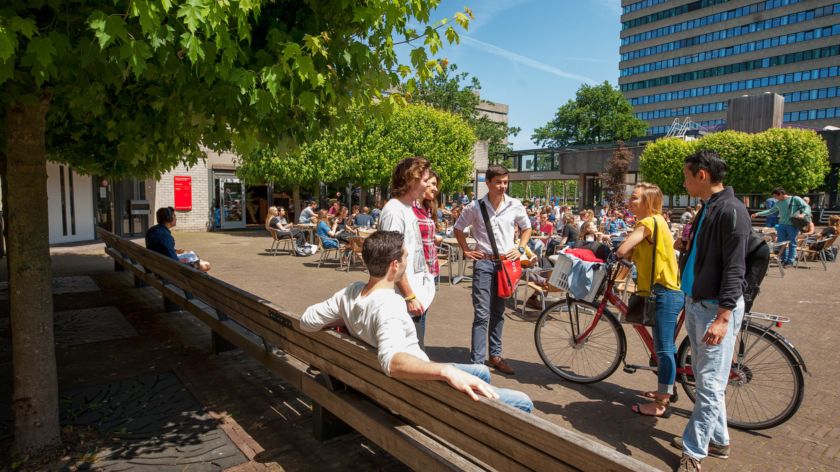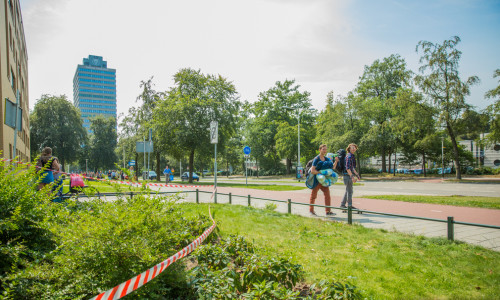‘The international classroom should be more than just a clever gimmick’
-
 Foto: Dick van Aalst
Foto: Dick van Aalst
Radboud University is seeking further internationalisation, which necessarily calls for an international classroom. Job Veltman en Cecile Collin from the student faction AKKUraatd support internationalisation and the international classroom if it improves education. However, this is of course easier said than done.
Radboud University is currently drafting plans to follow up on its internationalisation plans. With the university attracting an increasing number of international students, and with English becoming the standard language of instruction in Dutch lecture halls, developing these plans is an absolute must. One of the main sticking points is the international classroom. While a clear definition of this term appears to be lacking, it has something to do with drawing on the different backgrounds of students and lecturers with the aim of providing higher-quality education.
Quality education a top priority
Education is the top priority at AKKUraatd, which means that for us, internationalisation is not a separate goal in and of itself. However, we do support internationalisation if it improves the quality of education.
‘The international classroom is little more than standard education offered in English’
The main advantage of the international classroom is that the material can be discussed from different perspectives and backgrounds. Discussing the Eurozone crisis with a group of Dutch students is interesting, but the discussion becomes much more compelling when you involve students from Greece, a country which was hit a lot harder by the crisis than the Netherlands were. Interaction with students from different countries also improves students’ intercultural skills.
Unfortunately, other universities have found exchanging ideas and perspectives to be difficult in practice. Without sufficient attention for this exchange, the international classroom is little more than standard education offered in English. Practice has also shown that students tend to drift towards other students from the same country during lectures and seminars. This is known as ‘clustering’ and stands in the way of meaningful interaction and exchange.
For this reason, it’s important for Radboud University to address these issues in its internationalisation plans. A clear plan should be drafted to prevent clustering and to encourage interaction among students from different countries in the lecture hall. Only then will the international classroom become more than just a clever gimmick and can the quality of education truly be improved.
Student life for all
AKKUraatd not only supports quality education, but also promotes good student life for everyone. This means that all students should feel welcome and comfortable on campus and should have the opportunity to discover their talents. This applies to both Dutch and international students.
‘Many international students struggle to integrate into Nijmegen student life’
Meeting students from different countries presents you with an excellent opportunity to do this. International students bring their cultures with them and can learn more about their host country by interacting with Dutch students. In turn, these interactions may positively influence student life. They may give you the opportunity to experience Diwali or become lifelong friends with an Italian housemate.
As fun as this sounds, it’s also a bit rose-coloured. Experience has shown that many international students struggle to integrate into Nijmegen student life. Again, clustering plays an important role in this, but it’s also influenced by international student housing: most Dutch and international students live in separate houses or on separate floors. It also doesn’t help that student life is largely geared towards Dutch students, although this is understandable given that the internationalisation of student associations requires both time and money – two things that students generally lack.
Work to be done
Radboud University must therefore work hard to help international students feel at home on campus and in Nijmegen student life. Study associations should be supported in their internationalisation ambitions and the university should enter into talks with the SSH& to create a more equal distribution of Dutch and international students in student housing. No one wants to create a divide between Nijmegen students.
In the end, we all support internationalisation and the international classroom, as long as the exchange of ideas and perspectives serves to improve the quality of education. It is the university’s responsibility to help international students integrate into the Nijmegen student community. With this in mind, there’s still plenty of work to be done.



